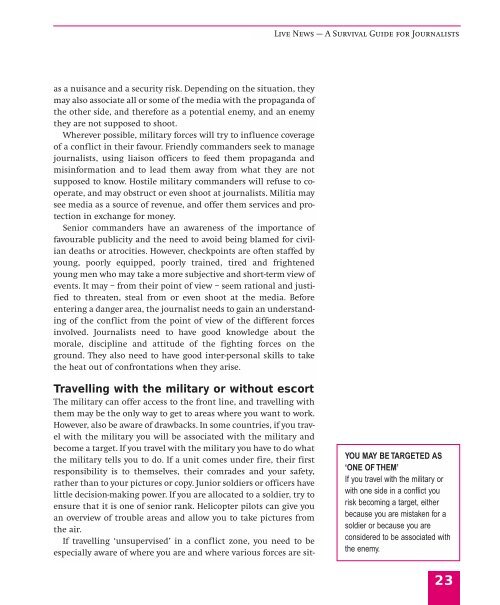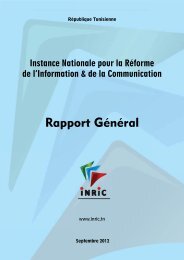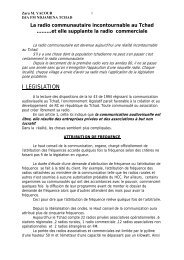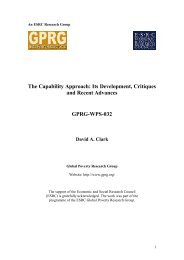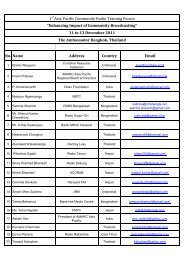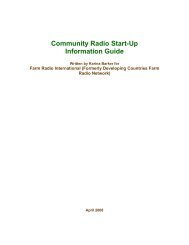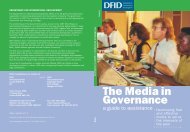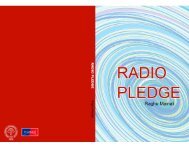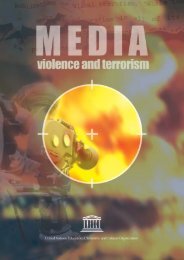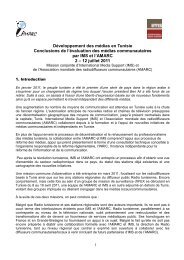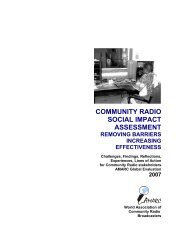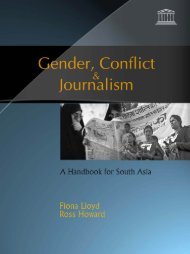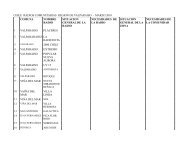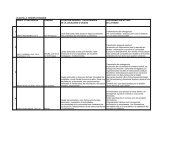Live News - A Survival Guide - International Federation of Journalists
Live News - A Survival Guide - International Federation of Journalists
Live News - A Survival Guide - International Federation of Journalists
- No tags were found...
Create successful ePaper yourself
Turn your PDF publications into a flip-book with our unique Google optimized e-Paper software.
<strong>Live</strong> <strong>News</strong> — A <strong>Survival</strong> <strong>Guide</strong> for <strong>Journalists</strong>as a nuisance and a security risk. Depending on the situation, theymay also associate all or some <strong>of</strong> the media with the propaganda <strong>of</strong>the other side, and therefore as a potential enemy, and an enemythey are not supposed to shoot.Wherever possible, military forces will try to influence coverage<strong>of</strong> a conflict in their favour. Friendly commanders seek to managejournalists, using liaison <strong>of</strong>ficers to feed them propaganda andmisinformation and to lead them away from what they are notsupposed to know. Hostile military commanders will refuse to cooperate,and may obstruct or even shoot at journalists. Militia maysee media as a source <strong>of</strong> revenue, and <strong>of</strong>fer them services and protectionin exchange for money.Senior commanders have an awareness <strong>of</strong> the importance <strong>of</strong>favourable publicity and the need to avoid being blamed for civiliandeaths or atrocities. However, checkpoints are <strong>of</strong>ten staffed byyoung, poorly equipped, poorly trained, tired and frightenedyoung men who may take a more subjective and short-term view <strong>of</strong>events. It may – from their point <strong>of</strong> view – seem rational and justifiedto threaten, steal from or even shoot at the media. Beforeentering a danger area, the journalist needs to gain an understanding<strong>of</strong> the conflict from the point <strong>of</strong> view <strong>of</strong> the different forcesinvolved. <strong>Journalists</strong> need to have good knowledge about themorale, discipline and attitude <strong>of</strong> the fighting forces on theground. They also need to have good inter-personal skills to takethe heat out <strong>of</strong> confrontations when they arise.Travelling with the military or without escortThe military can <strong>of</strong>fer access to the front line, and travelling withthem may be the only way to get to areas where you want to work.However, also be aware <strong>of</strong> drawbacks. In some countries, if you travelwith the military you will be associated with the military andbecome a target. If you travel with the military you have to do whatthe military tells you to do. If a unit comes under fire, their firstresponsibility is to themselves, their comrades and your safety,rather than to your pictures or copy. Junior soldiers or <strong>of</strong>ficers havelittle decision-making power. If you are allocated to a soldier, try toensure that it is one <strong>of</strong> senior rank. Helicopter pilots can give youan overview <strong>of</strong> trouble areas and allow you to take pictures fromthe air.If travelling ‘unsupervised’ in a conflict zone, you need to beespecially aware <strong>of</strong> where you are and where various forces are sit-YOU MAY BE TARGETED AS‘ONE OF THEM’If you travel with the military orwith one side in a conflict yourisk becoming a target, eitherbecause you are mistaken for asoldier or because you areconsidered to be associated withthe enemy.23


